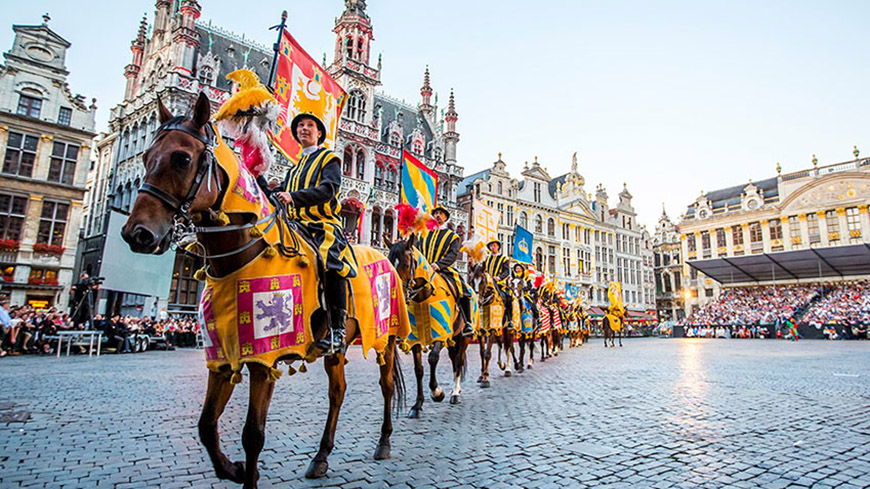Europe, with its rich history and diverse cultures, presents a unique and multifaceted environment for business. The continent is home to a wide array of economic powers, each with its own distinct business culture, shaped by history, language, and social norms. Understanding the nuances of business culture in Europe is crucial for anyone looking to establish or expand their business operations across the continent.
In this comprehensive post, we will explore the key aspects of business culture in Europe, including communication styles, hierarchy and decision-making, time management, work-life balance, and the role of cultural diversity. We will also examine the specific business practices in major European countries, offering insights into how to navigate the complex business landscape of Europe.

The Importance of Understanding European Business Culture
Why Culture Matters in Business
Culture plays a significant role in shaping how business is conducted in different regions of the world. In Europe, where countries are close in proximity but vastly different in culture, understanding these differences is key to successful business interactions. Business culture influences everything from communication and negotiation styles to decision-making processes and management practices.
For companies looking to expand into Europe, being culturally aware can help build strong relationships, avoid misunderstandings, and create a more effective and harmonious working environment. Conversely, failing to understand the cultural context of a business can lead to miscommunications, lost opportunities, and even damaged relationships.
The Diversity of Europe’s Business Landscape
Europe is not a monolithic entity; it is a continent of diversity, with each country boasting its own unique set of cultural norms and business practices. From the efficiency-driven business culture of Germany to the relationship-focused practices in Italy and Spain, Europe’s business landscape is as varied as its languages and traditions.
Understanding these cultural differences is essential for anyone looking to do business in Europe. While there are some overarching trends and similarities across the continent, it is important to recognize that each country has its own distinct business culture that must be navigated carefully.
Communication Styles in European Business
Direct vs. Indirect Communication
One of the key aspects of business culture in Europe is communication style, which can vary widely from country to country. In general, Northern European countries like Germany, the Netherlands, and the Scandinavian nations tend to favor direct communication. In these countries, business professionals are often straightforward and to the point, valuing clarity and efficiency in their communications. There is little room for ambiguity, and honesty is highly valued, even if it means delivering bad news.
In contrast, Southern European countries like Italy, Spain, and Portugal often have a more indirect communication style. In these cultures, preserving harmony and avoiding confrontation is important, so messages may be conveyed more subtly. Non-verbal cues, context, and the relationship between the communicators play a significant role in how messages are interpreted. This can sometimes lead to misunderstandings for those not familiar with the local communication norms.
The Role of Language
Language is another critical factor in European business communication. While English is widely spoken and often used as the lingua franca in international business settings, it is not universally understood or spoken fluently in every European country. In some countries, particularly in Southern and Eastern Europe, proficiency in English may be lower, and business is often conducted in the local language.
Understanding the importance of language in business interactions is crucial. In countries like France and Italy, for example, making an effort to speak the local language, even if just a few phrases, can go a long way in building rapport and showing respect for the local culture. In some cases, using a translator or interpreter may be necessary to ensure clear and effective communication.
Formality and Politeness
Business communication in Europe also tends to be more formal than in some other regions of the world. Titles and honorifics are commonly used, particularly in Germany, Austria, and France. Addressing colleagues and business partners by their professional titles (e.g., “Doctor,” “Professor,” “Mr.,” “Mrs.”) is a sign of respect and is expected in many European countries.
In the United Kingdom, politeness and diplomacy are highly valued in business communication. The British tend to be indirect in their communication, often using understatement and euphemisms. It is important to read between the lines and understand the subtleties of British communication to avoid misunderstandings.
3. Hierarchy and Decision-Making in European Business
Respect for Authority and Hierarchy
Hierarchy plays a significant role in business culture across Europe, but the degree of formality and the way authority is exercised can vary widely between countries. In countries like Germany, Austria, and France, businesses tend to have a clear hierarchical structure, with decision-making authority concentrated at the top. Respect for authority and seniority is deeply ingrained, and decisions often require approval from higher levels of management.
In Germany, for example, business is conducted in a structured and methodical manner, with decisions made through careful analysis and consultation with experts. The decision-making process may be slow, but once a decision is made, it is usually final and implemented efficiently.
In contrast, countries like Denmark, Sweden, and the Netherlands tend to have flatter organizational structures with a more egalitarian approach to decision-making. In these cultures, there is a strong emphasis on consensus and collaboration, with decisions often made collectively by teams rather than by a single leader. This approach reflects the broader social values of equality and democracy that are prevalent in these countries.
Centralized vs. Decentralized Decision-Making
The approach to decision-making in European business can be broadly categorized into centralized and decentralized systems. In centralized systems, common in countries like France and Spain, decisions are made by a small group of senior leaders, often with little input from lower levels of the organization. This can lead to a top-down approach to management, where employees are expected to follow directives from above.
In decentralized systems, as seen in the Nordic countries and the Netherlands, decision-making is more distributed, with employees at all levels of the organization having a say in important decisions. This approach fosters a sense of ownership and responsibility among employees, and can lead to more innovative and creative solutions.
For businesses looking to enter the European market, understanding the decision-making structure of the target country is crucial. It is important to identify the key decision-makers and understand the process by which decisions are made, whether it is through consultation, consensus, or a more hierarchical approach.
Time Management and Work Ethic in Europe
Punctuality and Time Perception
Time management is another aspect of business culture that varies across Europe. In Northern European countries like Germany, Switzerland, and the Scandinavian nations, punctuality is highly valued and seen as a sign of professionalism and respect. Meetings start on time, deadlines are strictly adhered to, and efficiency is a top priority. In these cultures, time is viewed as a valuable resource that should not be wasted.
In contrast, Southern European countries like Italy, Spain, and Greece have a more relaxed approach to time. Punctuality is still important, but there is more flexibility in how time is managed. Meetings may start later than scheduled, and there is often a greater emphasis on relationship-building and socializing during business interactions. This more flexible approach to time reflects the cultural value placed on personal connections and the importance of taking the time to develop trust and rapport.
Work-Life Balance
Work-life balance is an important aspect of business culture in Europe, and attitudes towards work and leisure can vary widely between countries. In countries like Germany and the Netherlands, there is a strong emphasis on maintaining a healthy work-life balance. Employees are encouraged to take regular breaks, and long working hours are generally discouraged. In these countries, productivity is measured not by the number of hours worked, but by the quality and efficiency of the work produced.
In France, the concept of “la belle vie” (the good life) is deeply ingrained in the culture, and there are strict regulations around working hours and employee rights. The French workweek is limited to 35 hours, and there are generous vacation entitlements. This reflects the cultural value placed on enjoying life outside of work and spending time with family and friends.
In contrast, in countries like the United Kingdom and Spain, there may be a greater acceptance of longer working hours, particularly in certain industries. However, even in these countries, there is a growing awareness of the importance of work-life balance, and many companies are adopting more flexible working practices to support the well-being of their employees.
Holiday and Vacation Policies
Europe is known for its generous holiday and vacation policies, which are often enshrined in law. In most European countries, employees are entitled to at least four weeks of paid vacation each year, and public holidays are widely observed. In countries like Italy and France, it is common for businesses to shut down for several weeks in August as employees take their annual summer holidays.
For businesses operating in Europe, it is important to plan around these holiday periods, as business activity can slow down significantly during the summer months and around major holidays like Christmas and Easter. Understanding the local holiday calendar and respecting employees’ right to time off is crucial for maintaining good relationships and ensuring smooth business operations.
Work-Life Integration: Balancing Work and Personal Life
Family and Social Life in European Business
In many European countries, particularly in Southern Europe, family and social life play a central role in business culture. Business professionals often place a high value on spending time with family and friends, and this can influence their approach to work. In countries like Italy, Spain, and Portugal, it is common for business interactions to take place in social settings, such as over a long lunch or dinner, where personal relationships can be strengthened.
This focus on family and social life is also reflected in the importance placed on work-life balance. In countries like Germany and the Netherlands, for example, there is a strong emphasis on ensuring


